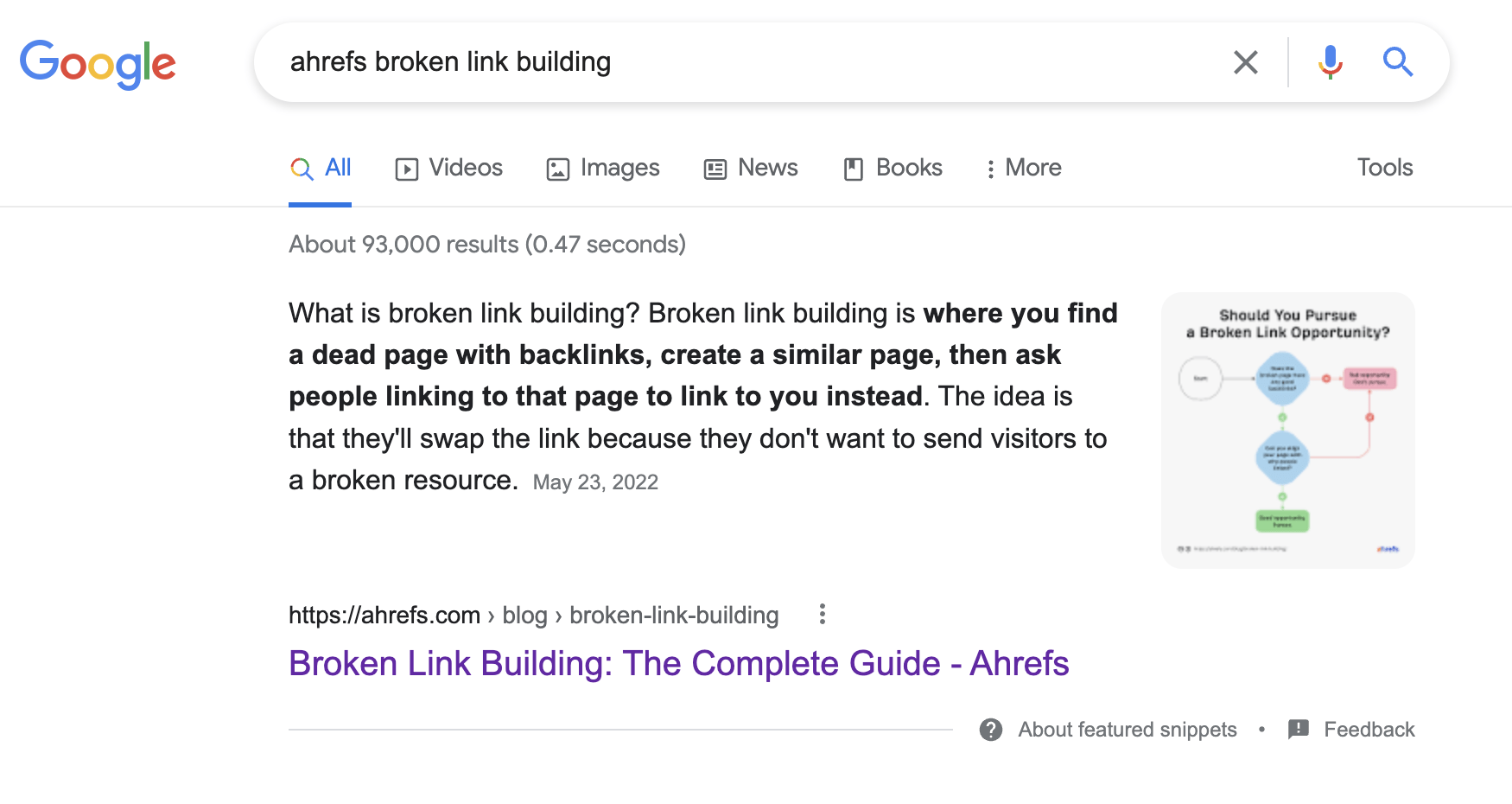Navigational Query
What is a Navigational Query?
A navigational query is a search made to find a particular website or web page and navigate to it. Most often, navigational queries include brand-specific terms.
Here are some examples of navigational queries:
“ahrefs”
“webmd symptom checker”
“amazon prime”
“usa today”
“netflix”
“youtube” and “facebook” are the most searched queries on Google, and these are also navigational queries. People find it simple to navigate to a website from Google.
You will notice that navigational queries mostly contain specific brand terms or products that indicate the users are clear about where they want to go next.
Why are navigational queries important?
Navigational queries are, basically, an alternative to typing a URL address into the browser. Since the users already know where they want to go, they use the navigational query to visit a website easily.
Navigational queries also help users find a particular web page of a website without looking for it on the website’s homepage or remembering its URL slug.
For example, at some point, you may need to revisit our broken link-building guide that you’ve seen before but haven’t saved it anywhere. You will simply search for “ahrefs broken link building” on Google.

Similarly, “ahrefs content explorer” or “ahrefs keyword research guide” are also navigational queries, not just “ahrefs.”
Can you optimize for navigational keywords?
Now that you know navigational queries help users find your website, you might wonder, “Is it possible to optimize your website or page for navigational keywords to rank for them?”
Well, if you don’t own the brand, the chances of ranking for the navigational query are very low.
And in fact, that does not make much sense either, as most users already know where they want to land.
But if you own the brand, you will likely rank for navigational queries organically. This is because Google wants you to rank for your own brand terms.
Yet, your competitors might try to rank for your brand queries using the search ads.
Hence, sometimes it can make sense to bid on your own branded keywords to prevent your competitors from stealing your business.
To increase your chances of ranking for your brand terms organically, the least you can do is to add the following things to your website:
- Brand name
- Description of your services
- Your address
This will make your website more likely to rank for your branded (and thus navigational) keywords.